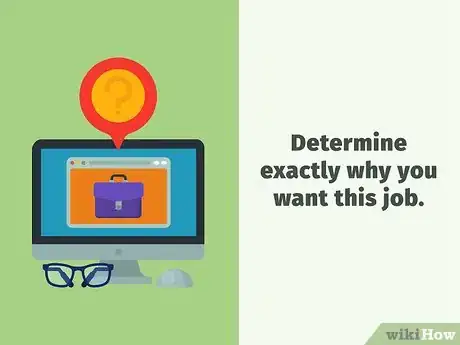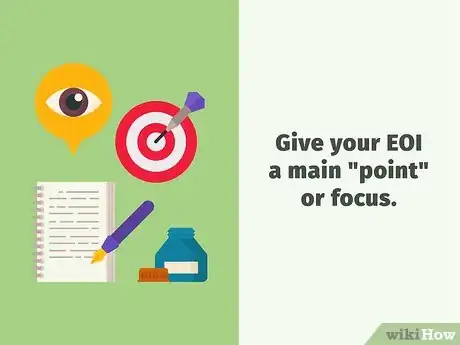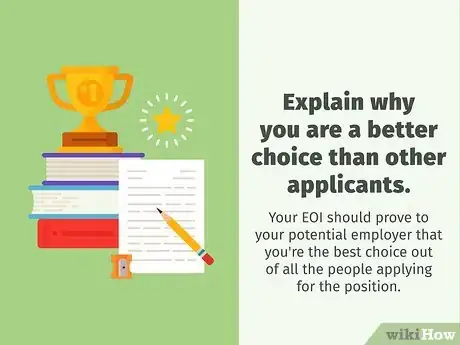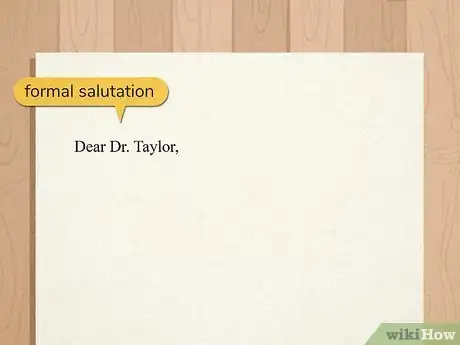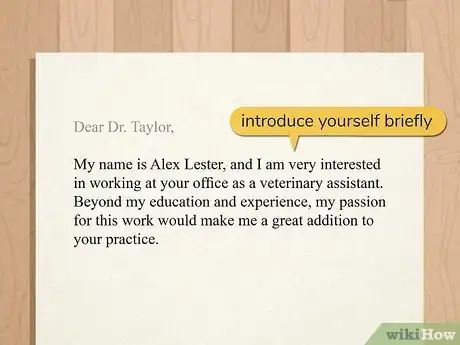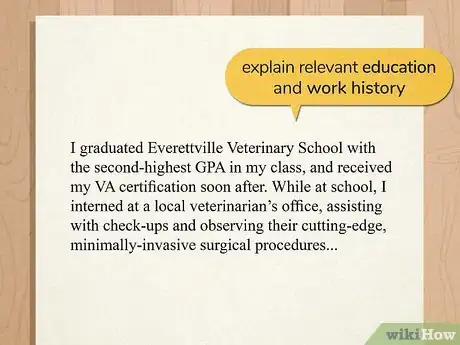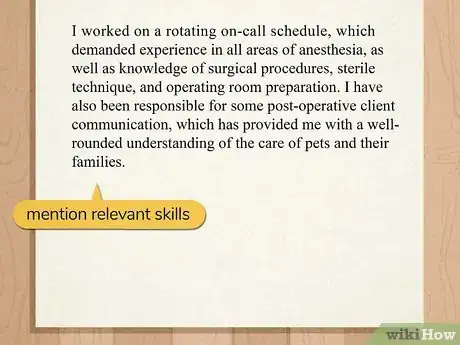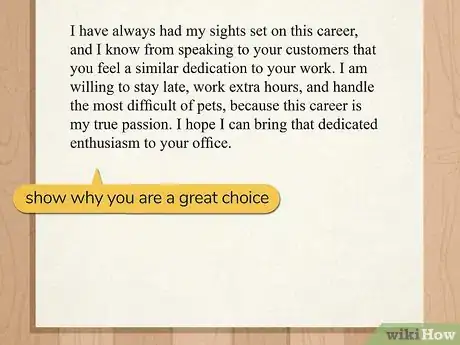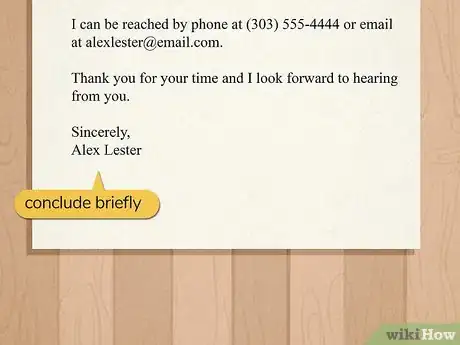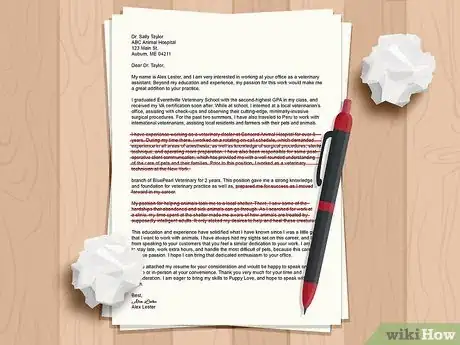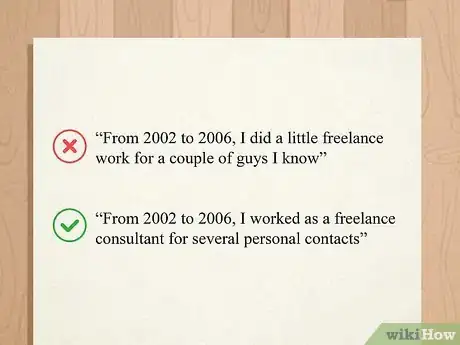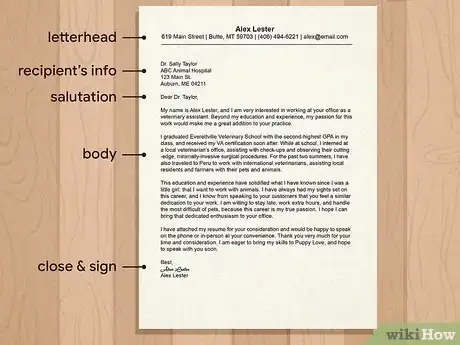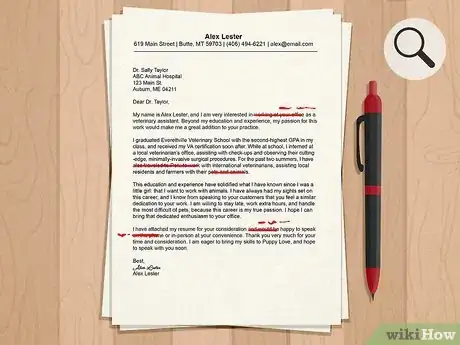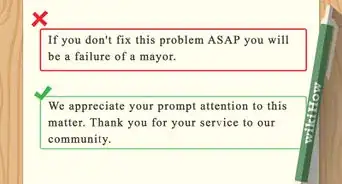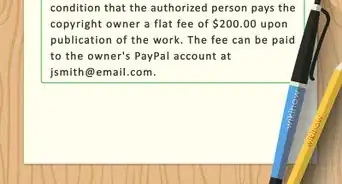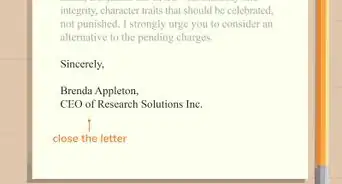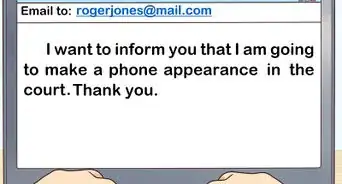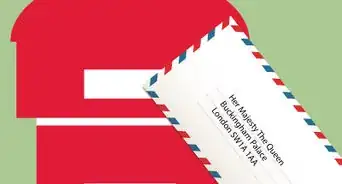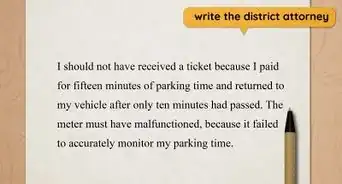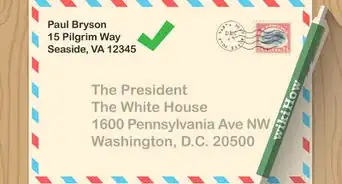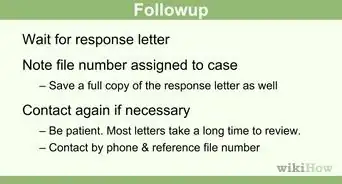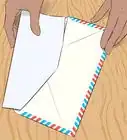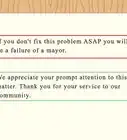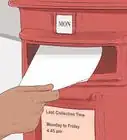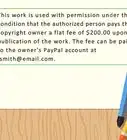wikiHow is a “wiki,” similar to Wikipedia, which means that many of our articles are co-written by multiple authors. To create this article, 14 people, some anonymous, worked to edit and improve it over time.
wikiHow marks an article as reader-approved once it receives enough positive feedback. This article received 37 testimonials and 91% of readers who voted found it helpful, earning it our reader-approved status.
This article has been viewed 848,937 times.
Learn more...
In business writing, an expression of interest (or EOI) is a document usually written by prospective job applicants. Like its name suggests, an expression of interest tells a prospective employer that the writer is interested in the job opening. Additionally, a well-written expression of interest will include information about why the applicant is a good choice for the position. In these respects, an EOI is very similar to a cover letter. Note: for how to specifically write an expression of interest for a visa, see our article on visa EOIs.
Things You Should Know
- Open with a formal salutation and briefly introduce yourself. Then, explain your work history and why your experience qualifies you for the job.
- Detail your relevant skills and provide a concise explanation for why you're the best person to fill the position.
- Sign off with your full name and contact information so the business can get in touch with you.
Steps
Outlining Your Expression of Interest
-
1Determine exactly why you want this job. Theoretically, someone applying for a job opening may have many other choices. Just as your EOI should tell your employer why you are a good fit for the job, it should also tell why the job is a good fit for you, What about this job makes it more appealing than other ones? How does it match up with your personal and professional goals? Employers love hearing why their job is more attractive to you than other ones because it makes you seem loyal from the get-go.
- Don't be overly-frank here, but don't be entirely dishonest either. For instance, if you're mostly taking the job for the money, don't outright say this because most employers will be hesitant to hire someone with no loyalty to anything other than their paycheck. Instead, try focusing on the other things that make the job appealing to you, even if they're minor — the hourly flexibility, the valuable experience it will give you, the opportunities you'll have in the position, and so on.
- For instance, if you're applying for the government IT position described above, you might want to talk about how a job with the government gives you a chance to use your skills to serve the greater good of the community. You wouldn't just say, "I want this job for the salary and the cushy benefits."
-
2Take stock of your past skills and experiences. Before you start writing, take a few moments to write down the work experience you've gained in your career that's relevant to the position you're applying for as well as any skills you have that make you an attractive candidate. Don't waste time with skills or experiences that aren't relevant to the position — you're trying to show why you're a good choice for this job specifically, not any random job.
- For instance, let's say that you're applying for a government job in an IT position. If you have past experience in computer/technology-related positions, you'll definitely want to include this. You probably won't want to include unrelated work, like the summer's worth of experience we got from working on a fishing barge. In addition, you'll want to include any proprietary skills we have that might aid in our job, like knowledge of basic programming languages.
Advertisement -
3Give your EOI a main "point" or focus. Most sources agree that EOIs should be as clear and concise as possible. To make the task of keeping your EOI brief easier, it can be useful to boil the point of your EOI down to a single sentence (as you might do for your thesis statement when writing an essay for school). Since it can seem a little blunt or mercenary to simply write, "I want this letter to get me a job," try to focus on what the job means to personally and professionally and how you can excel in the position.
- For instance, in our IT position example, you might whittle your EOI's purpose down to something like the following: "The purpose of this letter is to demonstrate how I can use my unique skills and experience in a high-demand IT role." You probably wouldn't want to be so cavalier as to say, "The purpose of this letter is to show that I'm the best and that I should get the job."
-
4Explain why you are a better choice than other applicants. Ultimately, your EOI should prove to your potential employer that you're the best choice out of all the people applying for the position. Spend some time thinking about why you as a person may be a better choice than a hypothetical applicant with exactly the same experience as you. Think about the intangibles you bring to the position. Some things you may want to consider are:
- Your personality. Someone who's otherwise well-qualified for a certain position may not get it simply because they aren't the right "fit" for the workplace. For instance, in a retail position, an open, communicative personality is a must.
- Your availability. Different jobs demand different hourly commitments — some are standard nine-to-fives, while others have odd hours or may require work on evenings or weekends.
- Your career path. Employers are more likely to hire people for whom the job being offered is a logical career move — in other words, it can be unattractive to an employer to hire someone for whom the job represents a major "change of course" in their career because it's less certain that they'll stay with the job long term.
Writing Your Expression of Interest
-
1Open with a formal salutation. Expressions of interest are formal business documents, so you should be sure to keep a dignified tone from the get-go. For instance, even your salutation (the "Dear So-and-So" greeting at the top of the letter) deserves some scrutiny. First impressions are key, so start off on the right foot by erring on the side of formality. Here, the best choice is usually to address your letter to the specific person in charge of reviewing applicants — usually the department head or HR manager — with a simple "Dear Mr./Ms. (Surname),". If you don't know who this person is, you can either call the company/organization to ask or use a general greeting like "Dear Hiring Professional,".
-
2Briefly introduce yourself. After your salutation, don't waste time — immediately begin to explain who you are, what your background is, and why you're writing. This introductory section can usually be contained to one paragraph no more than a few sentences long. Remember, the hiring team will probably have to read dozens of EOIs, so the quicker they're able to get a sense for who you are, the more likely they'll be to make it to the important info: your work history, skills, personality, and so on.
- For instance, if you're applying for the government IT job described above, the following might be a perfectly fine introductory section — it tells who you are and why you're writing in just three sentences:
- "My name is Jane Smith. I am writing in response to "IT Professional Wanted" posting on your website. As a veteran in the IT industry with over ten years of experience and someone for whom IT work is a personal passion, I would be a great fit in this position."
- For instance, if you're applying for the government IT job described above, the following might be a perfectly fine introductory section — it tells who you are and why you're writing in just three sentences:
-
3Explain your work history and how it qualifies you for the job. Next, dive right into your qualifications for the job. Start with your work history, especially if it's impressive. You don't need to be as detailed here as you would on your resume — it's usually enough to say something like, "For five years I worked at Company X in a managerial role," rather than methodically listing your start and end dates and specific duties like you would on a resume. As always, try to keep things brief — keep this info in a single short paragraph whenever possible.
- If you don't have any relevant work history (like, for instance, if you're applying for an entry-level position), don't worry. Focus instead on your skills, personality, work ethic, and any sorts of activities you've taken part in that might give you some sort of advantage. For instance, if you're applying for your first-ever job as a line cook in a local restaurant, you might describe your culinary background (including any cooking classes or culinary school) as well as non-cooking work you've done in restaurants (like serving, hosting, etc.).
-
4List your relevant skills. Your work experience isn't everything — sometimes, specific high-value skills can make you a much more attractive candidate than the amount of time you spent working in related positions. Mention any sort of specialized knowledge or expertise you have that might make you more effective in your role. There are a huge range of things you might conceivably put here — just a few are listed below:
- Language skills. Are you fluent or conversational in another language? This can be a big plus for international organizations.
- Tech skills. Do you have basic programming knowledge? Are you an Excel master? Do you know web design? For tech companies and startups, these skills are often in high demand.
- Special certifications. Are you licensed to operate a forklift? Weld? Drive a semi truck? Handle food? For skilled labor jobs, these sorts of certifications are essential.
-
5Explain why you, specifically, are a great choice. Near the end of your EOI, it's usually worth it to spend just a few sentences talking about why you are a good fit for the job as a person. Unless you already know about the culture at the company or organization you're applying to, don't say that you're a perfect match for the culture or that you'd instantly be everyone's best friend. Instead, focus on the traits that would make you a valuable worker. Below are the kinds of things you may want to bring up:
- Personality. Are you friendly and honest? Have you generally gotten along with your coworkers in the past? Employers like hiring team players — people who will keep a positive attitude at work and keep company morale high.
- Social preferences. Are you a talkative, gregarious extrovert? Are you a quiet, focused introvert? Your habits for interacting with other people can have a serious effect on your job performance — some jobs demand great talkers while others don't.
- Goals and Passions. Is this job something you love to do? Can it help you make achievements you've been dreaming of? Employers like hiring people with intense personal motivations for taking the job.
-
6Conclude graciously but briefly. When you've said everything you need to say to paint your self as an amply qualified candidate and a great fit, you're done, so end the letter as succinctly as you can while remaining polite. Don't waste time on long or dramatic goodbyes — a potential employer is more likely to be irked at having to read more than necessary than to be flattered by your flowery prose.
- For instance, in the IT example described above, we might conclude as follows:
- "Feel free to contact me via phone or email at (contact info). I look forward to hearing from you! Thank you for taking the time to read.
- Sincerely,
- Jane Smith"
- For instance, in the IT example described above, we might conclude as follows:
Polishing an Expression of Interest
-
1Re-read and trim any unneeded content. As frequently noted above, EOIs should be lean, succinct documents. To get your EOI as streamlined as possible, you'll need to be a merciless editor. When you've finished your first draft, take the opportunity to read it over at least one more time, looking for any unneeded content. Whenever you see a sentence that goes on longer than needed to get its point across, shorten it. Whenever you see a complicated word that could easily be replaced with a shorter one, do so. Your EOI is a functional document, not a chance to exhibit your writing ability, so keep it simple.
- If you have time, take a quick break between when you complete your EOI and when you start proofreading. Most writer's resources will recommend this because it gives you a healthy degree of "distance" from what you've just written, making it much easier to see mistakes.[3]
-
2Maintain a formal voice. EOIs should always be written with the sort of formal, dignified voice that normal business writing demands. Avoid using slang, colloquialisms, or humor. Keep in mind that the people reading your EOI have never met you before, so they won't have any reason to assume that you're including these things with good intentions rather than out of disrespect. A good general rule recommended by many writer's resources is to write as if you're giving an important speech, rather than talking to a friend of family member.
- As an obvious example, if you're talking our work history, the sentence "From 2002 to 2006, I worked as a freelance consultant for several personal contacts" sounds much more dignified than "From 2002 to 2006, I did a little freelance work for a couple of guys I know", even though it has almost the same meaning.
-
3Ensure you're using proper formatting. When you've finished the content of your letter, take a moment to ensure that it's formatted in a way that shows respect for formal business writing conventions and makes it as easy as possible to read. Typically, this will be very similar to that for a cover letter or similar document. Below are just a few formatting issues that are common sources of confusion:[4]
- Headings: In the top left corner of the letter, provide your name, address, phone number, and email address (each on a separate line. Leave a space between your heading and salutation.
- Spacing: Keep the text in the paragraphs single-spaced. Leave a space between each new paragraph.
- Indents: Either indent the first sentence of each paragraph or leave them aligned with the left side of the page. Many sources recommend against indenting if you skip lines between paragraphs.[5]
- Closings: Leave three spaces between your closing (e.g., "Sincerely,") and your name.
-
4Proofread for spelling and grammar before submitting. When you think your EOI is ready to send, be sure to give it one final once-over to look for any minor errors that may have slipped your notice. Keep an eye out for misspellings, inappropriate word use, grammar errors, and unnecessary content Below are just a few general tips for proofreading:[6]
- Work from a printed page, not a computer screen. Seeing your work in a different format lets you view how it appears on the page and can help cure a case of "glazed-over eyes" from looking at a computer screen for hours.
- Read out loud. Hearing your text with your ears in addition to seeing it with your eyes gives you an extra way to detect any errors. This is especially good for spotting run-on sentences that might otherwise escape you.
- Get a friend to help. Someone who's never seen the text before may be able to see errors that you can't. Often, spending a long time writing a document can make you "blind" to errors in it that you've gotten used to seeing.
Community Q&A
-
QuestionHow many words or pages should an expression of interest be?
 Community AnswerLike a cover letter, an expression of interest should never be more than a page long.
Community AnswerLike a cover letter, an expression of interest should never be more than a page long. -
QuestionHow do I improve my interview skills?
 Community AnswerBe honest. Be Open. DON'T be assertive. Let them know you are right for the job.
Community AnswerBe honest. Be Open. DON'T be assertive. Let them know you are right for the job. -
QuestionHow should I write a tender expression of interest?
 Community AnswerFollow you heart and your beliefs. Just keep trying things until you make somethng you like.
Community AnswerFollow you heart and your beliefs. Just keep trying things until you make somethng you like.
Warnings
- Don't address the recipient as "you" (e.g., "You should hire me because...", "I'd be a great fit in your company because..."). This can seem informal and, in some cases, even pushy or rude.⧼thumbs_response⧽
- Avoid using overly-complicated language or jargon in an attempt to impress the recipient. Hiring professionals are not likely to appreciate having to wade through a lengthy, bloated EOI just to find your skills and qualifications. Some may not even be able to understand the language you're using.⧼thumbs_response⧽
References
- ↑ http://money.usnews.com/money/careers/articles/2012/10/11/the-7-deadly-sins-of-cover-letter-writing
- ↑ http://money.usnews.com/money/careers/articles/2012/10/11/the-7-deadly-sins-of-cover-letter-writing
- ↑ https://owl.english.purdue.edu/owl/resource/561/01/
- ↑ https://owl.english.purdue.edu/owl/resource/723/03/
- ↑ http://www.writingclasses.com/WritersResources/AskTheWriterDetail.php?ID=125
- ↑ http://writing.wisc.edu/Handbook/Proofreading.html
About This Article
To write an expression of interest, open with a formal salutation like, "Dear Hiring Professional," then introduce yourself and state the position you're interested in. Briefly explain your work history and how it qualifies you for the job before moving on to listing your applicable skills. Add a line about why you're the best candidate and conclude with "Sincerely" followed by your full name. Remember to keep a formal, professional tone throughout and proofread it carefully before submitting. To learn more, like how to properly format the letter, keep reading the article!
